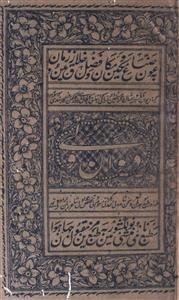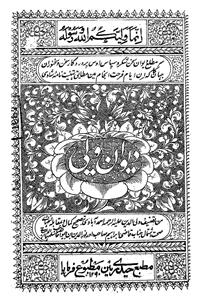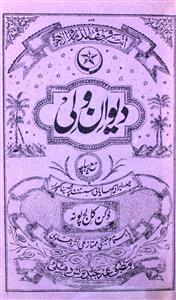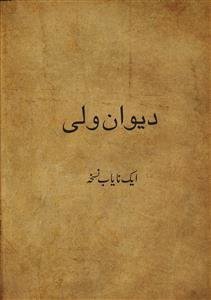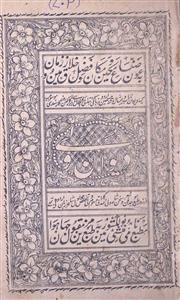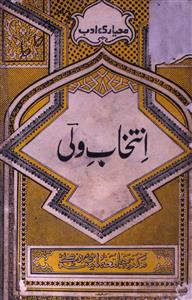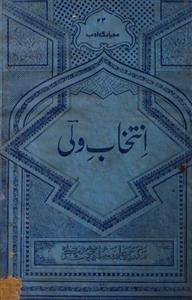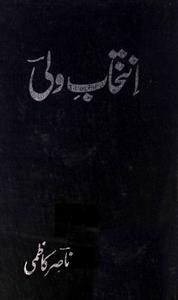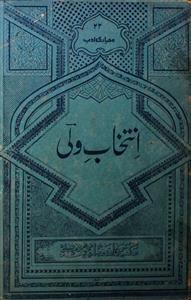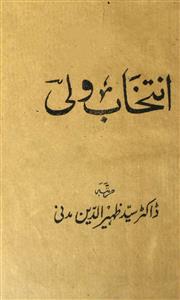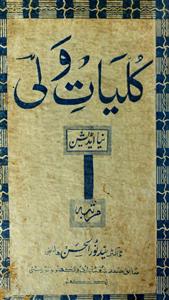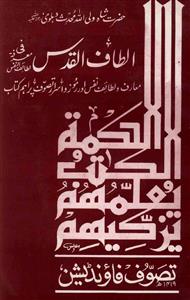 For any query/comment related to this ebook, please contact us at haidar.ali@rekhta.org
For any query/comment related to this ebook, please contact us at haidar.ali@rekhta.org
About The Book
دھیرے دھیرے ہم لوگ کلاسیکی ادب کے انتخاب پڑھنے کے عادی ہوتے جارہے ہیں اس کی بہت سی وجوہات ہو سکتی ہیں لیکن ایک وجہ یہ بھی ہے کہ کلاسیکی ادب بہت آسانی سے دستیاب نہیں ہوتا ،انٹرنیٹ پر اس کی دستیابی اور بھی مشکل ہو جاتی ہے ۔ولی دکنی کی تخلیقی کائنات کے بارے میں ہم میں سے اکثر کی معلومات نصابی ضرورتوں کے لئے تیار کئے گئے انتخاب پر مبنی ہے ۔سو ولی دکنی کا دیوان حاضر ہے ۔ولی کو پڑھنا اور باربار پڑھنا اس لئے بھی ضروری ہے کہ ولی کی غزل شعری اظہار ،زبان اور موضوعات کے حوالے سےایک اہم موڑ کی حیثیت رکھتی ہے اور ساتھ ہی ولی کی غزل کلاسیکی اردو غزل کی شعریات کے مباحث کابنیادی حوالہ ہے ۔
About The Author
Vali Deccani (1667-1707) whose name is variously recorded in histroy as Shamsuddin Mohammad Vali, Shams Valiullah, Valiuddin Vali, and Vali Mohammad Vali, is generally recognised in literary history as Vali Deccani and, at times, Vali Gujarati. Said to have been born in Ahmedabad in Gujarat, or Aurangabad in Maharashtra, he travelled to the far ends of the south and the north, including Delhi. He is claimed till now both by Deccan and Gujarat although he lies buried in the city of Ahmedabad where his grave was vandalised during the infamous riots of 2002.
Vali lived in a time of political and social turmoil but sought his sustenance from the larger mystic traditions of India. He considered literature as a way of negotiating between the physical and the spiritual. The figure of the lover in his poetry represents both the worlds of the sensual and the non-sensual. Even though well versed in the Persian literary tradition and the Deccani and Hindi phraseology, Vali surprised the literary circle in Delhi with his non-Persianised Urdu divaan and its linguistic freshness, which till then was called rekhta, a language of the lesser literay kind, not quite fit for sober poetic expression. His choice for the plebeian idiom and his effort to blend it with other linguistic and literary traditions of the north and the south altered the stereotypical notions of those who championed the purity of language, as a necessary condition for serious literary expression. A master image-maker and an innovator of refreshing similes and metaphors, Vali has come to be categorised as a canonical figure in Urdu poetry.
 For any query/comment related to this ebook, please contact us at haidar.ali@rekhta.org
For any query/comment related to this ebook, please contact us at haidar.ali@rekhta.org
Write a Review
Jashn-e-Rekhta 10th Edition | 5-6-7 December Get Tickets Here
